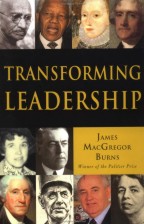
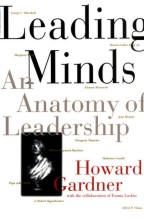
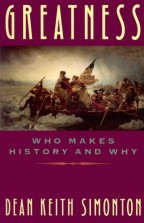
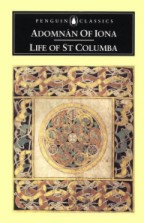
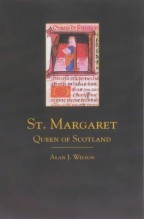
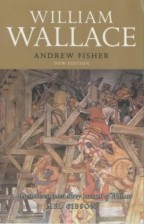
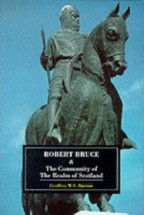
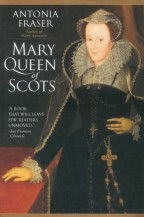

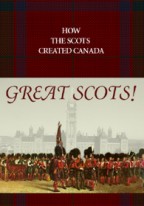
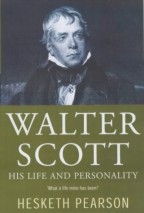
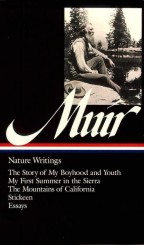
Great Scots: Bibliography
David R. Cross, Ph.D.
Here is a selective, annotated bibliography for students (and others) interested in Great Scots. Enjoy!
Behavioral and Social Sciences
Burns, J. M. (1982). Leadership. Perennial. [Probably the most important book in the field of leadership studies. Burns is a political scientist, and thus has a different agenda than do psychologists such as Gardner and Simonton, but this is a must read for any serious student of leadership.]
Burns, J.
M. (2003). Transforming Leadership: The Pursuit of Happiness. Atlantic
Monthly Press. [In Transforming Leadership Burns expands and clarifies
his work in his earlier Leadership, focussing especially on transformational
leadership, that brand of leadership that is socially and psychologically
generative, and is foundational for personal well-being - "the pursuit
of happiness".]
Gardner, H. (1996). Leading minds: An anatomy of leadership. New York: Basic Books. [Like Dean Keith Simonton, Howard Gardner is one of the leading psychologists writing about creativity and leadership. Both are prolific, but each has a different approach. Whereas Simonton's approach is quantitative, Gardner's is qualitative. And whereas Simonton is eclectic from a theoretical standpoint, Gardner tends stay pretty close to his own theoretical roots. Both are excellent. I have used Leading Minds as a textbook for this course, and it works quite well.]
Simonton, D. K. (1980). Land battles, generals, and armies: Individual and situational determinants of victory and casualties. Journal of Personality and Social Psychology, 38, 110-119.
Simonton, D. K. (1984). Leader age and national condition: A longitudinal analysis of 25 European monarchs. Social Behavior and Personality, 12, 111-114.
Simonton, D. K. (1984). Leaders as eponyms: Individual and situational determinants of monarchial eminence. Journal of Personality, 52, 1-21.
Simonton, D. K. (1994). Greatness: Who makes history and why. New York: Guilford. [Simonton is the leading contemporary psychohistorian, and his work virtually defines the field. He has investigated greatness in all its forms, concentrating on creative genius and political leadership. In Greatness, he provides his broadest treatment of issues related to Great Scots, including such topics as motivation, development, age, intelligence, and personality. This book would be a great resource for students in the course.]
Sorokin, P. A. (1925). Monarchs and rulers: A comparative statistical study. I. Social Forces, 4, 22-35.
Sorokin, P. A. (1926). Monarchs and rulers: A comparative statistical study. II. Social Forces, 4, 523-533.
Suedfield, P., Corteen, R. S., & McCormick, C. (1986). The role of integrative complexity in military leadership: Robert E. Lee and his opponents. Journal of Applied Social Psychology, 16, 498-507.
Thorndike, E. L. (1936). The relation between intellect and morality in rulers. American Journal of Sociology, 42, 321-334.
Woods, F. A. (1906). Mental and moral heredity in royalty. New York: Holt.
Woods, F. A. (1909). A new name for a new science. Science, 30, 703-704.
Woods, F. A. (1911). Historiometry as an exact science. Science, 33, 568-574.
Woods, F. A. (1913). The influence of monarchs. New York: Macmillan.
History, Biography, and Original Works
St. Adamnan. (1995). Life of St. Columba (R. Sharpe, Trans.). Penguin Books. [Adamnan followed in Columba's footsteps as the head of the Iona monastery, and also wrote the earliest biography - or hagiography - of Columba.]
Barbour, J. (1978). The Bruce (A. A. M. Duncan, Trans.). Canongate Classics.
Barrow, G. (1988). Robert Bruce and the Community of the Realm of Scotland. University of Edinburgh Press. [The definitive Bruce biography, and my own personal favorite - it does justice to an exemplary monarch.]
Bede, Van de Weyer, R. (Ed.). (1997). Celtic and Roman Christianity in Britain. Berkhamsted: Arthur James. [Bede was a contemporary chronicler of the conflict between Celtic Christianity and Roman Christianity that has been taking place in Britain since 597, the year that Columba died on Iona, and Augustine landed in Kent. The high water mark of this conflict was the Synod of Whitby, held in 664, which nominally gave Roman practices priority over the Celtic. Bede's account is the major source for knowledge about early Christianity in Britain.]
Cahill, T. (1995). How the Irish saved civilization: The untold story of Ireland's heroic role from the fall of Rome to the rise of medieval Europe. New York: Doubleday. [Most people don't realize that after the fall of the Roman Empire, Christianity was reintroduced to Great Britain and other parts of Europe not from the east - from Constantinople - but from the west - from Ireland. Ireland's monasteries preserved much of the Christian spiritual and literary tradition during the Dark Ages, and then Irish missionaries such as St Columba returned to the pagan lands to establish centers of Christian worship, practice, and teaching.]
Ehrlich,
G. (2000). John Muir: Nature's Visionary. National Geographic.
Fisher, A. (2002). William Wallace (2nd ed.). Birlinn Ltd.
Fraser, A. (1993). Mary Queen of Scots (Reprint ed.). Delta.
Guy, J. (2004). Queen of Scots: The True Life of Mary Stuart. Houghton Mifflin.
Hunter, D. (2000). St Columba's case book. British Medical Journal, 320, 494.
Marshall, R. K. (2000). John Knox. Edinburgh: Birlinn.
Muir, J. (1997). Nature Writings: The Story of My Boyhood and Youth; My First Summer in the Sierra; The Mountains of California; Stickeen; Essays. (W. Cronon, Ed.). Library of America.
Pearson, H. (2001). Sir Walter Scott: His Life and Personality. House of Stratus.
Scott, A. M. (2000). Bonnie Dundee: John Graham of Claverhouse (Rev. ed.). John Donald.
Scott, Sir W. (1981). Waverly. Penguin Classics (Original published 1814).
Scott, Sir W. (1995). Rob Roy. Penguin Classics (Original published 1817).
Shaw, M. (2004). Great Scots: How the Scots created Canada. Winnipeg, CA: Heartland Associates.
Turner, F.,
White, G. (Intro.). (1985/1997). John Muir: From Scotland to the Sierra.
Edinburgh: Canongate.
Wilson, A.
J. (2001). St Margaret: Queen of Scotland. John Donald Publishers.
Home | Research | Lab | Publications | Classes | Links